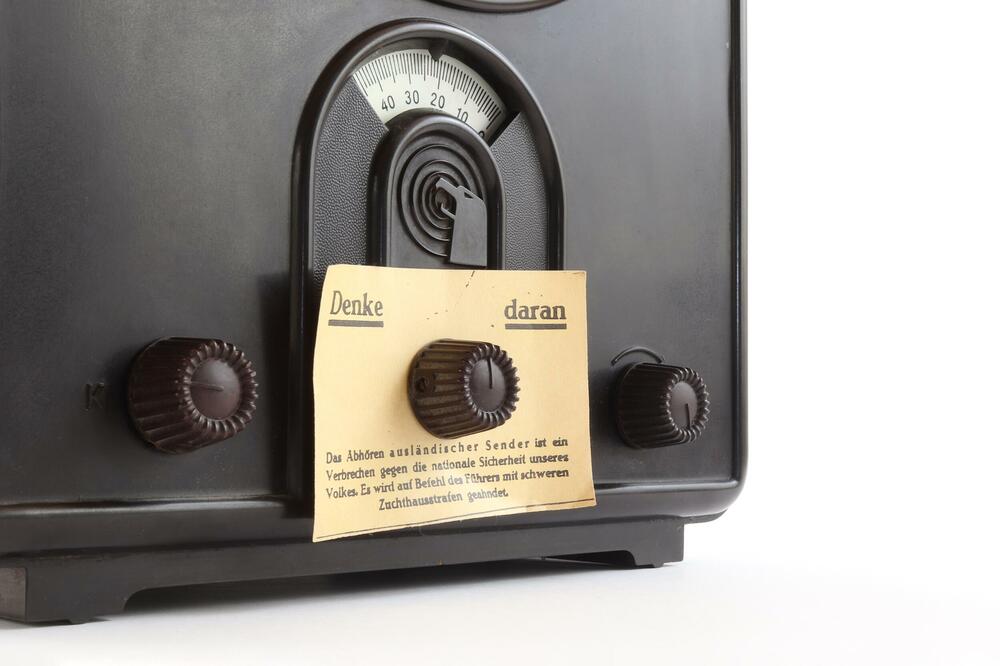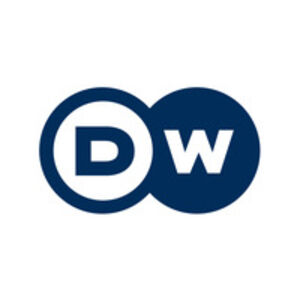In the early 1930s, radio was what the Internet and social media are today. However, radio receivers were expensive, often costing more than the average salary.
The Nazis recognized the enormous potential of radio early on and used it as soon as they could to influence the then almost 70 million Germans. Propaganda Minister Jozef Goebbels forced companies such as Telefunken, Loewe or Blaupunkt to release a cheap device, the so-called "people's receiver" (Volksempfänger), on the market, regardless of production costs. This happened just a few weeks after Adolf Hitler took power in Germany on January 30, 1933.
The first model was marked VE 301, (acronym for people's receiver and date of Hitler's takeover of power). With a fixed price of 76 Reichsmarks (nearly 400 euros today), the device was affordable for most households. Then, in 1938, the DKE 38, a "small German receiver" popularly known as "Gebelsschnause" - or "Goebbels's loss", came to the market.
The subscription is financed by Goebbels' ministry
The People's Receiver was presented to the public exactly 90 years ago, on August 18, 1933 in Berlin. This happened at the Great German Exhibition of Radio Technology, where the first 100.000 copies were sold immediately.
The success was huge. At the beginning of 1932, there were four million radio subscribers in Germany, and at its peak in 1943, about 16 million Germans paid two Reichsmarks a month for a radio subscription. The largest part of that money flowed into Goebbels' ministry, which financed almost its entire budget with it.
Of course, the population could only be influenced by the Nazi state determining what the radio program would be - and that down to the smallest detail. The radio stations, which were initially independent, were put under an umbrella organization and politically put in order. Except for one, all the directors were dismissed and replaced by people loyal to the regime. To the directors, who were now on the line, Goebbels said back in March 1933: "We don't hide it - the radio belongs to us and no one else. We will put it at the service of our idea, and no other idea can get a say in it."
Reports from the front, some fun, lots of Hitler speeches
There were only two programs: one national and one local. The broadcasts began with the then-ubiquitous greeting: Heil Hitler – long live Hitler. It was understood that the voice of the leader, the Führer, was especially often heard on the radio. All of Hitler's major speeches were broadcast in their entirety. And the devices were advertised with posters that read: "With the people's receiver, all of Germany hears the Führer."
With the beginning of World War II in Europe in 1939, propaganda radio became especially important. Reports from the front were constantly broadcast and increasingly embellished. Instead of dance music, marches were played. Still, there was no shortage of fun. The Concert of Musical Wishes for the Wehrmacht was a particularly popular show, where you could hear the stars of the time.
At the beginning of 1943 at the latest, when Germany lost the battle for Stalingrad and when defeat in the war became more and more apparent, radio had the task of killing the Germans.
In a speech at the Sports Palace in Berlin on February 18, 1943, which was of course broadcast by radio, Goebbels rhetorically asked the audience ten questions, the fourth of which read: "Do you want total war? Do you want it, if necessary, to be more total and radical than we can even imagine now?" After each question, the audience thunderously answered: "Yes!" - and enthusiastically applauded.
Fake news from start to finish
But it became difficult to hide the truth. Germans trusted Nazi radio less and less. Many listened to foreign, "enemy radio stations" such as the BBC's German-language service. It is a criminal offense for which even the death penalty was threatened.
Tilo Vobst, who listened to banned stations as a student during the war, says for the "Portal of Contemporary Witnesses" in the House of German History: "We listened to the broadcasts, but we never talked about it. Mom said: Either keep your mouth shut, or the radio is flying."
From the first day of the war, radio played a key role. As is known, on September 1, 1939, Germany invaded Poland. However, the Germans heard a false news on the radio - that Poland had attacked the radio station Glajvic in Upper Silesia.
On that day, Hitler addressed the Germans on the radio: "Poland fired on our territory for the first time last night, and that was its regular army. As of 5:45 a.m., we are returning fire."
And as it began, with lies on the radio, so it was until the very end: on May 1, 1945, the radio reported that Hitler had fallen in the fight against Bolshevism, in his office, fighting for Germany until his last breath. However, Hitler committed suicide in the bunker the day before.
A few days later, the war in Europe ended, and with it the Nazi propaganda. The US military administration in West Germany first banned German radio broadcasts. In the following years, the USA, Great Britain and France established new broadcasting structures in West Germany. At the same time, it was very important to them that the radio would never again be placed in the service of any government.
Bonus video:





